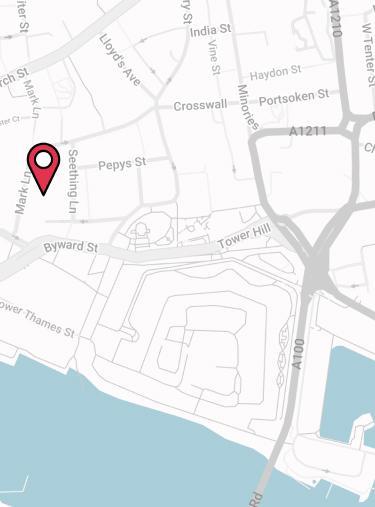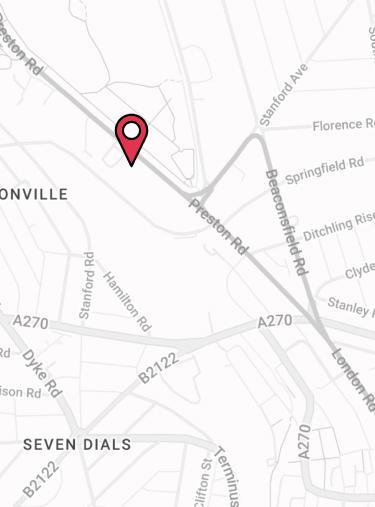
APPN Pilots Loss of Licence Insurance Review And Alternatives To Consider…
Who Are APPN?
APPN is a French association and non-profit organisation for pilots that was founded in 1957. It offers both temporary and permanent Loss of Licence Insurance for pilots as well as Life Insurance and claims to insure around 60% of the world’s civil aviation professionals.
Being based in France, premiums and payouts for APPN policies are denominated in euros.
APPN’s Loss of Licence Insurance
Temporary Loss of Licence Cover
APPN’s temporary Loss of Licence Insurance covers pilots if they can’t work due to illness or injury for up to 36 months. The maximum monthly income you can receive from the policy is €10,000 if your licence is temporarily suspended on health grounds.
Your benefit kicks in after 4 weeks of incapacity (payment begins on the 29th day of your illness) and is initially paid at 50% of your total monthly sum assured for 3 months, followed by 100% up to the 24th month. For the 25th month to the 36th month, the benefit is paid at 75% of your sum assured.
If you claim for the full 36 months and still don’t have your licence back, the benefit period ceases and you no longer receive a payout from it, even if you’re still unable to work.
You need to be under the age of 45 to apply for the cover, although the policy can run until your 65th birthday.
Permanent Loss of Licence Cover
APPN’s permanent Loss of Licence Insurance kicks in and pays out a lump sum of up to €600,000 if you lose your licence entirely as a result of medical unfitness.
It works in addition to temporary Loss of Licence Insurance but can also be taken out as a standalone benefit.
You receive a single payout if you lose your licence; after this, your policy ends.
Again you need to be under the age of 45 to apply for cover, although the policy can run up until your 65th birthday.
Drawbacks to Loss of Licence Cover
Cover is Fixed in Terms of Money or Time
One drawback is that it is typically limited to a fixed monetary amount. So you’ll either receive a fixed lump sum or a monthly income that is capped at the total equivalent of that lump sum.
IMPORTANT NOTICE 🧐
If your policy insures you for £100,000 and you receive an income, you’ll only ever receive monthly income until the £100,000 threshold has been reached, after which the payouts end.
This may be insufficient if you still can’t work after this ‘pot’ of money has been exhausted.
Alternatively, there might be a time limit on claims, say 1, 2 or 3 years per claim. This may not be long enough if you licence is suspended over the long-term due to an ongoing health concern.
Your Licence Must Be Revoked
While there’s considerable variation in the contracts available, almost all such policies have one thing in common: your pilots licence must be either revoked or suspended in order to make a claim.
You may run into issues here should you be ill or injured in a way that wasn’t serious enough to cause the temporary / permanent suspension of your licence to fly (such as a bad back) but found yourself nonetheless unable to work through that illness or injury.
Limited Cover Up to a Maximum Age
Furthermore, many policies on the market will limit the age up to which illness cover is provided. For example, some plans will cease illness cover at 55 and only provide bodily injury cover thereafter.
Given the retirement age for many commercial pilots is 65, this could see you 10 years short of your retirement at a point in your life where the likelihood of a claim is higher due to your increasing age but without appropriate cover.
Is Pilots Income Protection An Alternative?
Pilots Income Protection is very different from various Loss of Licence policies on the market.
Loss of License Insurance is a common insurance policy commercial pilots turn to that’s designed to pay out a lump sum or a monthly income should your licence either be permanently or temporarily revoked on health grounds.
Income Protection, on the other hand, is designed to pay out if anything medically prevents you from doing your job as a pilot, whatever this might be. It doesn’t have to be so serious your licence is suspended or revoked; all that is required is that you cannot perform the daily duties of your specific occupation.
This can be anything from a bad back to the more serious, such as cancer, heart attack or stroke.
The Importance of Own Occupation Income Protection
The ‘own occupation’ definition of incapacity is particularly important for pilots looking into Income Protection, as your ability to make a claim hinges on your definition of incapacity.
‘Own occupation’ cover means the plan will pay out if you are unable to work as a pilot specifically due to ill health. It won’t require you to attempt any other job before paying out.

The ‘suited occupation’ definition is much harder to claim on as there is the added requirement of you also being unable to do another job for which you have training or experience — for example as a pilot you may still be able to teach new pilots in a simulator or classroom and so a claim could potentially be declined.
Jake Mills
Independent Protection Specialist at Drewberry
Avoid Suited Occupation Cover
Getting the best definition of incapacity can be a bit of a minefield for pilots. Of all the providers out there on the market offering Income Protection, just four offer an ‘own occupation’ definition of incapacity.
This is because of the increased risk associated with a pilot losing their licence and therefore being unable to work through illness or injury compared with your average office worker. As such, most providers only offer a ‘suited occupation’ definition to pilots.
Income Protection vs Loss of Licence Cover
Entry Requirements |
|---|
The entry age is the maximum age you can be to enter into an insurance contract. For Income Protection it tends to be higher than for Loss of Licence Insurance. While Loss of Licence Insurance might have a maximum entry age of 45 or lower, Income Protection, depending on the provider, may have an entry age of 55+. | Length Of Claims |
There’s no restriction on how long you can be in a claim or how much you can receive in a payout with long-term Income Protection . If you’re too ill to ever work again, long-term Income Protection will pay out indefinitely, right up until retirement. Where Loss of Licence Insurance will usually have either monetary or time limits on claims. | Claims Requirements |
Income Protection has no requirements to meet, such as losing your licence, to trigger a payout. You just have to be signed off work by an appropriate medical professional and be unable to do your own specific job as a result of illness or injury. | Policy Protection |
When you buy Income Protection through an adviser, you are protected. Drewberry offers a regulated advice service, which means we’re responsible for the policy we set up for you. Going direct to a Loss of Licence Insurance provider won’t provide this protection, so you won’t benefit from these securities. |
Our Verdict
For the majority of our pilots there’s not much competition between Loss of Licence Insurance and Income Protection. To ensure which is best for your circumstances it may well be worth talking through with our advisers.
Income Protection tends to be a more robust option, with the greater potential for a payout, even if many pilots haven’t heard of it!
With long-term, own occupation Income Protection, a pilot can be secure in the knowledge they have protected their income. Loss of Licence Cover, in our opinion, can leave too many important questions unanswered.
Why Speak to Us?
When it comes to protecting yourself and your finances, you deserve first-class service. Here’s why you should talk to us:
- There’s no fee for our service
- We’re an award-winning independent insurance broker, working with the leading UK insurers
- You’ll speak to a dedicated specialist from start to finish
- 4072 and growing independent client reviews rating us at 4.92 / 5
- Claims support when you need it most
- We’re authorised and regulated by the Financial Conduct Authority. Find us on the financial services register.
If you need help with your Pilots insurance please do not hesitate to pop us a call on 02084327333 or emailhelp@drewberry.co.uk.
- Topics
- Pilots
- Income Protection
Contact Us
125-135 Preston Road
Brighton
BN1 6AF
Cookies
Drewberry™ uses cookies to offer you the best experience online. By continuing to use our website you agree to the use of cookies including for ad personalization.
If you would like to know more about cookies and how to manage them please view our privacy & cookie policy.







